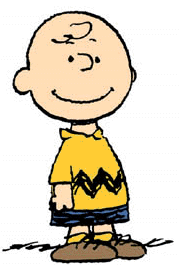 
 字體:小 中 大
字體:小 中 大 |
|
|
|
| 2006/04/06 02:04:52瀏覽1240|回應2|推薦5 | |
前貼杜念中文章,有朋友問杜念中是否是新保守派;最近哈佛大學政府系教授Harvey Mansfield由耶魯大學出版社出版Manliness一書,杜在蘋果日報上為文介紹。Mansfield是著名(有人會說惡名昭彰)的新保守主義者、馬基維利學者、史特勞斯派(有點像三合一敵人了)。他在1994年美國國會參眾兩院落入共和黨之手時說:「【羅斯福】的新政終結了」(當年美國眾院乃是自1954年以來第一次由共和黨掌握多數;共和黨至今仍掌握多數,民主黨期待今年的期中選舉能扳回來)。紐約時報的書評大加嘲諷,但激起德國的著名外交評論家Josef Joffe投書抗議。 http://www.nytimes.com/2006/03/19/books/review/19kirn.html?_r=1&oref=slogin 這裡貼出Mansfield受紐約時報雜誌專訪與波士頓環球報的報導;在網上搜尋,據說討論本書的部落格達五百多篇,多數大概沒有讀過此書(我也沒有)。Mansfield所講的,部分是「夫唱婦隨」、「男主外、女主內」,覺得這些概念古板的人,現在知道有位今年73歲的哈佛大學教授也是這麼主張的。 紐約時報有另一篇報導,說有位金髮碧眼的健美先生捐贈精子銀行,已知用他的精子生出的子女有21個,他們的父母包含四對女同性戀伴侶、三對異性戀夫妻與六位單親媽媽,現在成立網路BBS,還打算集體出遊…另一篇報導哈佛商學院教授研究捐精人的身高,平均是五呎十吋(美國男人平均與此差遠了)。 如果說「生命的意義在創造宇宙繼起之生命」的話,那這位健美先生顯然蠻成功的… 附帶值得一提的是,杜念中提到Mansfield新譯的托克維爾《民主在美國》,他忘了提這是Mansfield和他太太合譯的(參考附圖)。 Of Manliness and Men. (THE WAY WE LIVE NOW: QUESTIONS FOR HARVEY C. MANSFIELD)(Interview) Deborah Solomon. The New York Times Magazine, Q: As a staunch neoconservative and the author of a new feminism-bashing book called "Manliness," how are you treated by your fellow government professors at Harvard? Look, if I only consorted with conservatives, I would be by myself all the time. So your generally left-leaning colleagues are willing to talk to you? People listen to me, but they don't pay attention to what I say. I should punch them out, but I don't. In your latest book, you bemoan the disappearance of manliness in our "gender neutral" society. How, exactly, would you define manliness? My quick definition is confidence in a situation of risk. A manly man has to know what he is doing. Hasn't technology lessened the need for risk taking, at least of the physical sort? It has. But it hasn't removed it. Technology gives you the instruments, and social sciences give you the rules. But manliness is more a quality of the soul. How does someone like Arnold Schwarzenegger stack up? I would include him as a manly man. But doesn't he exemplify the sort of man whose overdeveloped muscles are intended to mask feelings of insecurity? Yes, but then he stepped up to become governor of What about President Bush? He's a risk taker, but wouldn't his penchant for long vacations be a strike against him? I wouldn't say industriousness is a sign of manliness. That's sort of wonkish. Experts do that. What about Dick Cheney? He hunts. And he curses openly. Lynne Cheney is kind of manly, too. I once worked with her on the advisory council of the National Endowment for the Humanities. In your book, you say Margaret Thatcher is an ideal woman, but isn't she the manliest of all? I was told by someone who visited her that she is very feminine with her husband. Why is that so important to you in light of her other achievements? We need roles. Roles give us mutual expectations of what is either correct or good behavior. Women are neater than men, they make nests, and all these other stereotypes are mostly true. Wives and mothers correct you; they hold you to a standard; they want to make you better. I am beginning to wonder if you have ever spoken to a woman. Your ideas are so Victorian. I have a young wife who grew up in the feminist revolution, and even though she is not a feminist, she wants to benefit from it. I wash the dishes, and I make the bed. How young is she, exactly? She's 60. I'm 73. Were you sorry to see Harvard's outgoing president, Lawrence Summers, attacked for saying that men and women may have different mental capacities? He was taking seriously the notion that women, innately, have less capacity than men at the highest level of science. I think it's probably true. It's common sense if you just look at who the top scientists are. But couldn't that simply reflect the institutional bias against women over the centuries? It could, but I don't think it does. We have been going a couple of generations now. There are certain things that haven't changed. For example, in Yes, but fewer jobs depend on that sort of physical brawn as society becomes more technologically adept. Physical advantages are practically meaningless now that men are no longer hunter-gatherers. I disagree with that. When was the last time you did something that required physical strength? It's true that nothing in my career requires physical strength, but in my relations with women, yes. Such as? Lifting things, opening things. My wife is quite small. What do you lift? Furniture. Not every night, but routinely. CRITICAL FACULTIES The manly man's manHarvey Mansfield, conservative political theorist and academic provocateur, argues that women--and society--need to come to terms with 'manliness'
|
|
| ( 時事評論|人物 ) |











